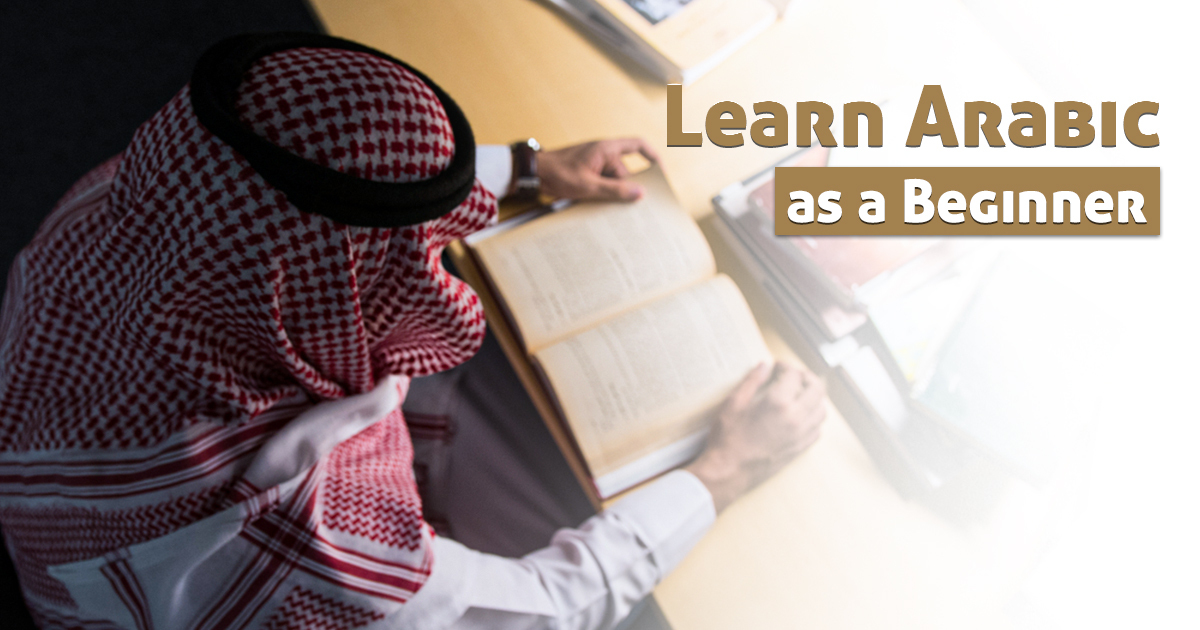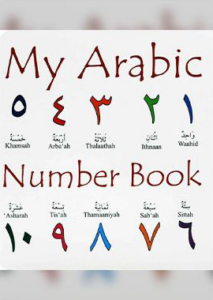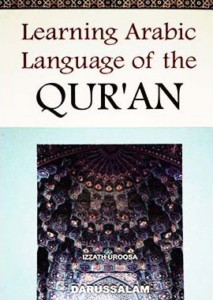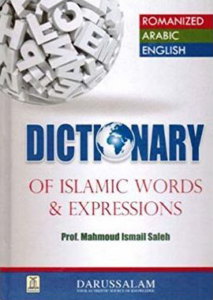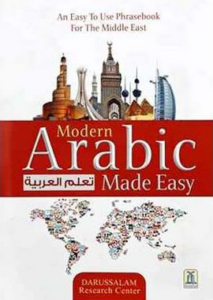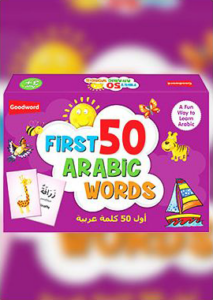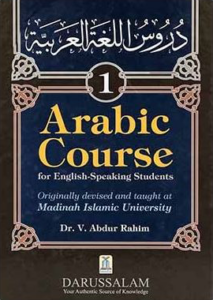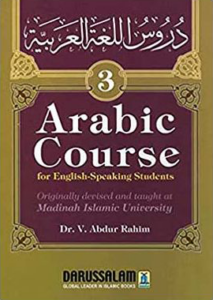Starting your journey as a newbie in learning Arabic? Well done! Soon you will be entering a world full of intriguing ideas in languages and cultures. Arabic is considered the most beautiful of all languages. It is characterized by the graceful appearance of the script and by the age-old values that it has preserved.
Where do you start, and fast-track your way forward? This guide aims to help de-mystify this process. We will lead you through useful advice, recommended resources, and directions on how to conquer Arabic. Hence, take up your book and we will kick-start our journey in the colorful sphere of Arabic languages.
Click Now to Get Your Arabic Learning Books.
Understanding the Arabic Language
1. The Significance of Arabic in Islam:
In Islam, Arabic holds a special place. The Quran, which is the holy book of Islam, was revealed in Arabic. This means that learning Arabic allows us to read the Quran in its original form, which is highly cherished.
2. The Arabic Alphabet:
Arabic uses a script that is written from right to left. It has 28 letters, and some of these letters can change shape based on where they are in a word. Learning these letters is like unlocking a door to understanding the Quran directly.
3. Pronunciation and Tajweed:
Correct recitation of the Quran comprises Tajweed assists us with our accurate and pleasantly pronounced words. Learning Tajweed is as simple as honoring the speech of Allah.
4. Arabic Vocabulary in Islamic Worship:
The Quran is mostly in Arabic and has many Islamic terms and phrases. These are words that assist in carrying out daily prayer (salah) as well as reciting supplication (du’a) and worship.
5. Studying Islamic Knowledge:
Much classical Islamic text is written in Arabic – Hadith collections or legal treaties. Knowing Arabic allows better insight into these precious sources of Islamic information.
Choose the Right Arabic Learning Resources
1. Quranic Tafseer and Translation:
Begin by utilizing explanatory and translated materials for use in your local language. Through this, you can comprehend the contents of the verse leading you into a closer grasp of the divine direction.
2. Islamic Language Courses:
Find programs with the title “How to Learn Arabic.” Various organizations provide a structured program that is designed specifically to cater to learners with an interest in Islamic studies.
3. Arabic Learning Apps with Islamic Content:
Look for appropriate language learning apps that have elements of Islamic words and sentences. In most cases, these applications have religious words which will be very important in developing an appropriate glossary aligned with your belief system.
4. Islamic Books and Texts:
Read simple books on Islam published in Arabic. Begin with easy pieces of writing that let you be aware of Islamic terms, supplications, and manners.
5. Tajweed Resources:
If you’re interested in reciting the Quran with proper Tajweed, consider resources like books, audio recordings, or online courses that focus on Tajweed rules.
Learn Basic Conversational Arabic Phrases
1. Greetings and Polite Expressions:
As-salamu alaykum (السلام عليكم): Peace be upon you. This is a common Islamic greeting.
Wa alaykum as-salam (وعليكم السلام): And upon you be peace. This is the reply to the greeting above.
2. Introducing Yourself:
Ana (أنا): I am…
Ismi (اسمي): My name is…
Ana Muslim (أنا مسلم): I am a Muslim.
3. Asking and Responding to How Someone Is:
Kaifa haluka? (كيف حالك): How are you? (to a male)
Kaifa haluki? (كيف حالكي): How are you? (to a female)
Ana bikhair, shukran! (أنا بخير، شكرا): I am fine, thank you!
4. Expressing Gratitude:
Shukran (شكرا): Thank you.
Afwan (عفوا): You’re welcome.
5. Basic Questions and Responses:
Maa ismuka? (ما اسمك): What is your name? (to a male)
Maa ismuki? (ما اسمكي): What is your name? (to a female)
Ismi… (اسمي): My name is…
6. Asking for Help:
Madaad, min fadlak (مدد، من فضلك): Help, please.
7. Common Phrases for Daily Interactions:
Mataa (متى): When
Ayna (أين): Where
Kam (كم): How much
Min fadlak (من فضلك): Please
8. Expressing Good Wishes:
Masha’Allah (ما شاء الله): Whatever Allah wills. Used to express admiration or to protect something from the evil eye.
Insha’Allah (إن شاء الله): If Allah wills. Used when talking about plans or events.
9. Basic Expressions of Faith:
La ilaha illallah (لا إله إلا الله): There is no god but Allah. This is a fundamental declaration of faith in Islam.
Focus on Arabic Vocabulary Building
1. Learn Common Islamic/Arabic Terms:
Begin by learning essential Islamic terms like “Allah” (الله), “Prophet Muhammad” (النبي محمد), “Mosque” (مسجد), “Prayer” (صلاة), and “Quran” (القرآن).
2. Start with Everyday Words:
Start with common, everyday vocabulary such as those associated with greetings, family, food and leisure. Examples as “Family” (عائلة) “Eat” (أكل) “Drink” (شرب) and “Play” (لعب).
3. Use Flashcards:
Make up or buy an Arabic set of flashcards to refresh the vocabulary. First, write down the Arabic word and then its translation opposite it. Check and review them periodically in order to enhance retention.
4. Label Everyday Objects with Arabic:
Give item labels a name in Arabic so that they are clues of learning in your home. Such a practical way of learning words makes them feel familiar with their surroundings and everyday life.
5. Utilize Arabic Language Learning Apps:
Most language applications have special features for practicing vocabulary. Designate a few minutes every day to acquire new vocabulary.
6. Read Simple Arabic Texts and Books:
Commence with kids’ books or elementary-level books in Arabic. Such publications usually have a glossary in order to facilitate understanding of uncommon words.
7. Engage with Islamic Arabic Content:
Reading Islamic publications, books, and speeches in Arabic. It also enables you to expand your knowledge in Arabic and Islamic studies.
Conclusion
Mark your achievements, however small they might be and do not lose sight of your targets. Engage yourself in the language and the culture, and forget about the errors you might commit. With a little bit of effort and practice every day, you’ll see that you will progress tremendously. therefore, nurture your passion and make your language arbor. A tip is you can also start learning by memorizing basic dua and saying specific events such as “what to say when someone dies in Islam“.
FAQs Related to Learning Arabic as a Beginner
Is Arabic a difficult language to learn for beginners?
Although Arabic is considered a difficult language, everyone should understand that each language comes with its own difficulties. Through persistence, regular work and suitable tools novices may obtain considerable success. The best way to deal with this is to start with the basics and slowly increase your skillset.
How long does it typically take to become proficient in Arabic?
The number of hours necessary for one to acquire proficiency in reading and writing Arabic differs from one individual to another. These include previous foreign language learning experience, study methods, and the amount of time spent practicing. Nevertheless, through diligent practice and immersive learning tactics, beginning learners can attain a basic understanding within a few months.
Do I need to learn the Arabic script to speak the language?
One can still communicate in simple conversations in Arabic without necessarily learning the full details. For more effective results it’s highly recommended that one get familiar with the scripts. Script comprehension is critical for reading, writing, and the understanding of Arabic at the core level or more advanced one. This is an important skill because it provides access to more resources and options to learn.
How can I practice speaking Arabic if I don’t have access to native speakers?
You can practice speaking the Arabic language even without direct contact with native speakers. Individuals can participate in language swap platforms, online discussion boards, and language meet-ups that bring together other learners or native speakers. Also, one can utilize applications that are accompanied by speech recognition as supplementary training in improving your speech.
Are there specific dialects of Arabic I should focus on as a beginner?
MSA is a formal, standardized form of Arabic where it’s used for official communication, literature, media, and other formal purposes. A strong foothold on which every Arabic learner should stand. For example, at a later stage, it would be possible for you to concentrate on a particular variant of a regional dialect (Egyptian, Levantine) if you want to communicate effectively with the people of some countries.

